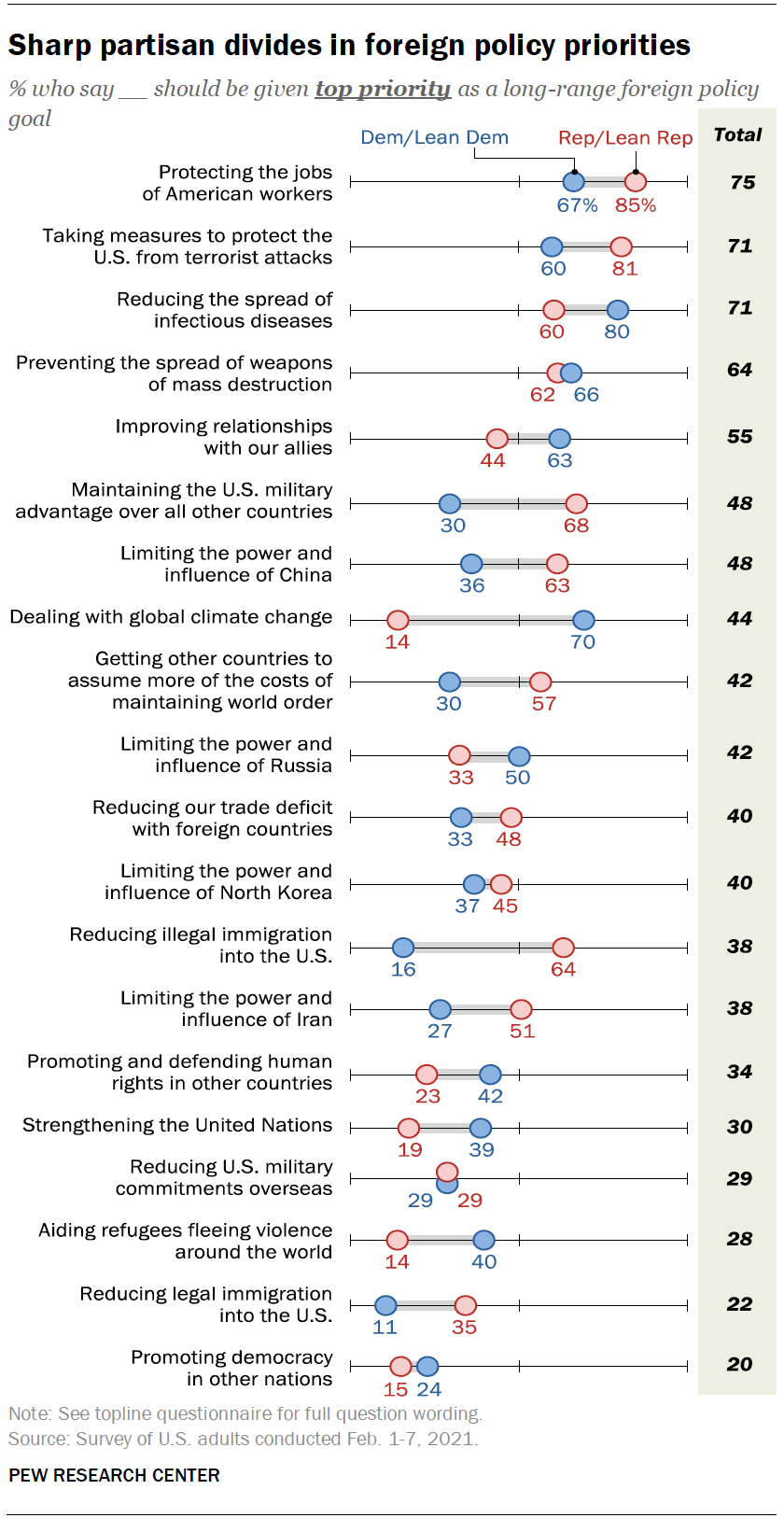
Voters don’t really care about Biden’s democracy summit
The ingredients are there to make it matter, but it requires a clearer strategic narrative
A friend of mine emailed me on the first day of the Biden administration’s Summit for Democracy asking:
“Do you see anything particularly positive about the Zoom democracy summit overseas? It really seems much more aimed at us, at Westerners, than at those who live under tyrants. We and the Europeans have problems; the administration sees our problems coming overwhelmingly from the right wing within the country, hence the somewhat wokey focus of this thing. We are looking at ourselves, as we are inclined to do. Navel-gazing, as the French would say.”
My initial response: I don’t even think most Americans even know this is happening, and it probably just flies over the heads of nearly all but a few elites in this country.
The question prompted three main thoughts about Biden’s democracy summit:
1. Do Americans even care? Probably not.
Before we even look at how the world reacts, the democracy summit seems unlikely to garner the attention of ordinary Americans, in part because that’s what recent research into public attitudes on foreign policy priorities tell us.
In a list of top 20 foreign policy priorities, “promoting democracy in other nations” comes in dead last according to a Pew poll from earlier this year.
This tracks with earlier research on U.S. voter attitudes summarized in “America Adrift,” a 2019 Center for American Progress report that found “promoting democracy and democratic values around the world” as the lowest of all foreign policy priorities tested.
Those results don’t mean that it wasn’t worth doing this summit – it just shows what an uphill battle the Biden administration faced in connecting with the American public about this important issue.
2. What impact will this summit have in the world? It’s too soon to tell.
An obvious point to make here: like the fall climate conference, what matters is the follow up actions, rather than the words spoken. The Biden administration has the makings of some tangible new directions for U.S. foreign policy, particularly on the anti-corruption front. U.S. Treasury Secretary Janet Yellin and U.S. Agency for International Development administrator Samantha Power outlined a sound argument for why this piece of the agenda could matter in the bigger picture, but it all depends on policy implantation rather than policy argumentation.
Where the rubber hits the road on policy implementation are on some of the toughest cases. For instance, ask Lithuania next week or a little bit later what the summit delivered or might deliver for its democracy. Or see how the Ukraine crisis with Russia unfolds.
But anecdotally I’ve already picked up some signs that people around the world don’t see the connection between their own situations and what was happening in the virtual summit.
Just as the first day of the democracy summit was unfolding, I was sitting in a briefing on the state of play in Lebanon, one of those tough cases of an electoral democracy being eaten from within by corrupt political elites and authoritarian movements with backing from other autocrats in the neighborhood. Listening to the briefing made me think that Lebanon as a country sounds a lot like the condo building in Surfside, Florida that completed imploded earlier this year – the owners of the building are incompetent and corrupt, and the good people who live there are the ones who will get hurt the most by the structural flaws.
One participant in this briefing on Lebanon literally raised the question: “Is America going to do anything to support Lebanon’s democracy? Are there going to be efforts to help those fighting for freedom and better governance here?” This question was literally being raised at the same moment the big democracy summit was happening – underscoring both the failure to communicate and the need to follow up.
3. Can Biden get his strategic narrative together? It’s possible – he has all of the ingredients.
Given these dynamics at home and abroad, what can the Biden administration do to make a clearer case? It needs to connect the dots in its own ambitious domestic and foreign policy agenda more clearly. Interestingly, parts of President Biden’s speech opening the summit did this, drawing a link between the performance of democratic governance and the good things his administration has done at home in year one of his presidency to just start the economy and invest in America’s competitiveness. Biden did not directly draw as sharp of a contrast with China and Russia in his speech, a missed opportunity to frame the global challenge.
The Biden team has sporadically used a phrase, “a foreign policy for the middle class” to describe its general instinct to try and connect ordinary Americans with its foreign policy in the world, but it has yet to operationalize what that means in practice. Interestingly, that slogan didn’t appear in Biden’s democracy summit speech.
But as John Halpin recently argued in the Liberal Patriot,
“If Biden and America’s democratic allies want to forge a new consensus in support of democracy—and against one-party states that are repressive and undermine human rights—they are going to need a much sharper rationale for action and a clearer set of points for why people around the world should be concerned with defending democracy.”
That means drawing a tighter connection between the values discussed at this summit and the practical outcomes people want to see in their lives: a better economy and jobs, high-quality education, and a health care system. That means offering a clearer strategic narrative built on a more inclusive nationalism at home that seeks to reconnect with the world in a new way.
As this democracy summit draws to a close, there’s much work to be done ahead.






